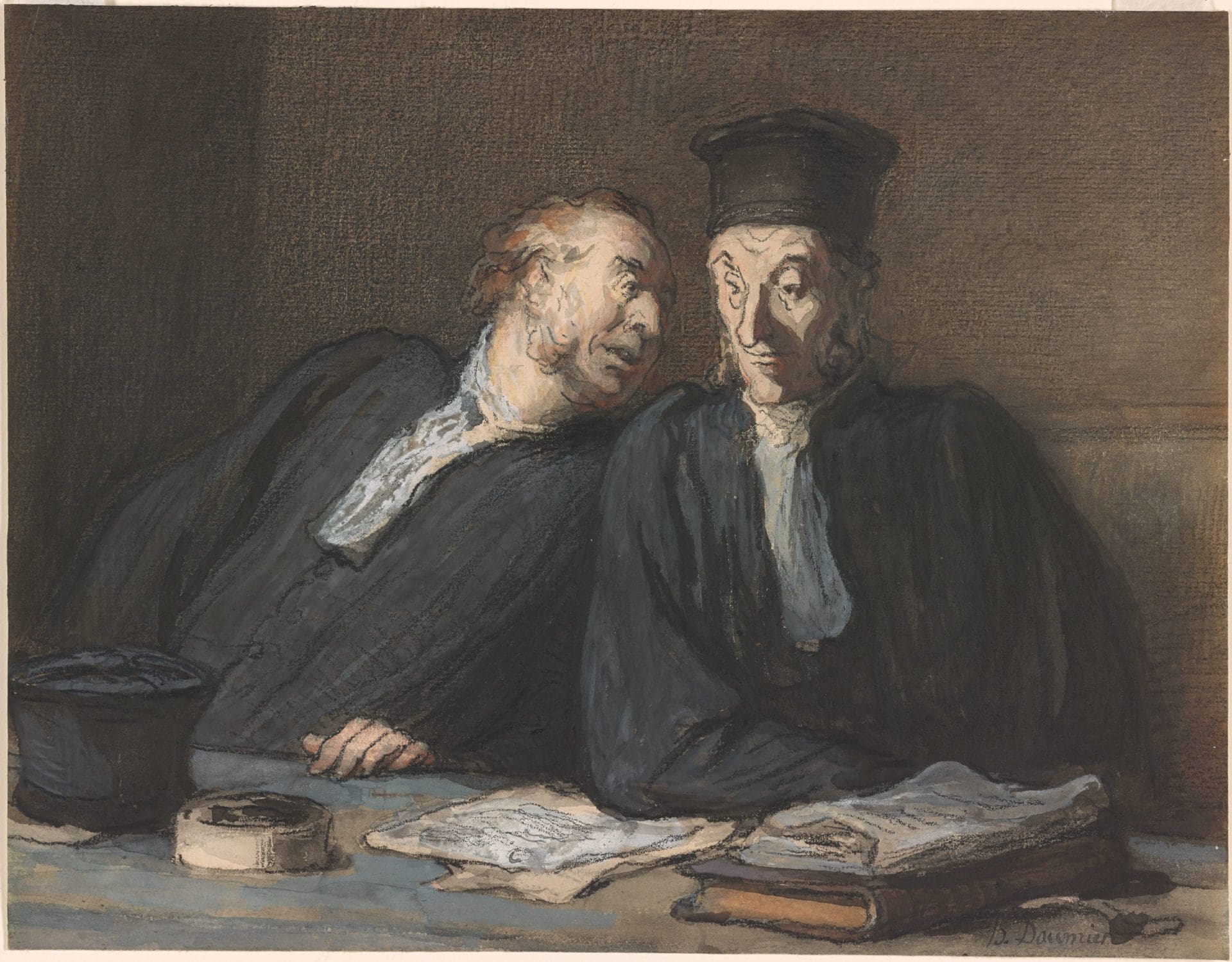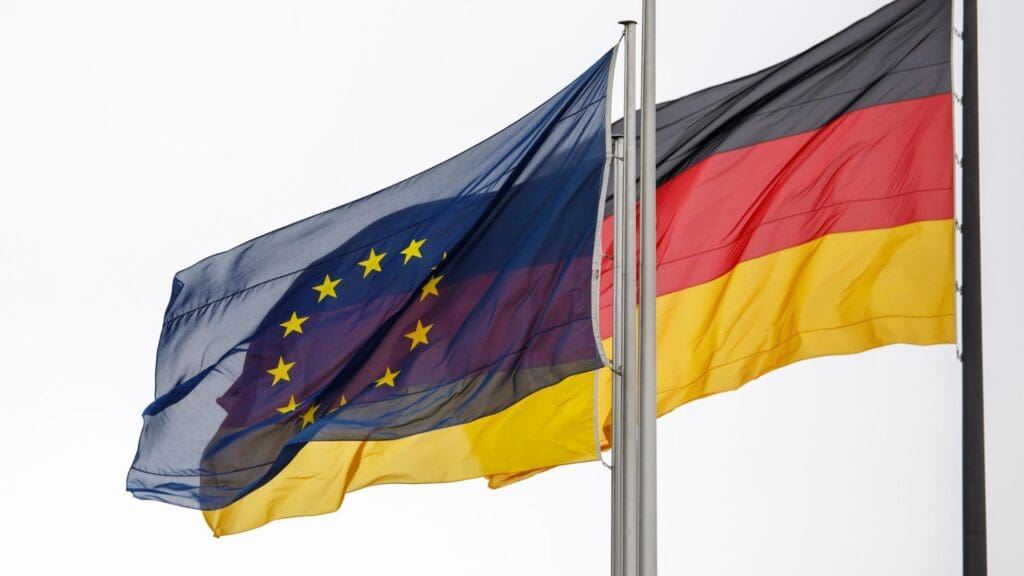The speech given by the President of the European Commission, Ursula von der Leyen on 16 September 2020 on ‘the general state of the Union’, expressed a desire to build not just a market, but a ‘European society’ transcended by ‘common values’. This is not a new aspiration in Brussels, but it explains the tensions that are emerging around the notion of the rule of law.
In this speech, President von der Leyen declared her determination to strengthen the ‘right of minorities’ and the Commission’s intention to ‘fight discrimination’ and ‘unconscious prejudice’ through the implementation of a transnational ‘action plan’. Far from being a mere catalogue of good intentions, this speech refers specifically to the values of ‘respect for human dignity, freedom, democracy, equality, the rule of law, as well as respect for human rights’, as listed in Article 2 of the Treaty on European Union. The consideration of such ‘values’ is imposed on all member states, as breaches are liable to punishment by sanctions as stipulated under Article 7 of the same Treaty.
In the eyes of the Commission, Hungary—whose refusal to accept the migrant quotas established by the EU in 2015, during the refugee crisis, and whose new Constitution (implemented in January 2012) reaffirming the Christian roots of the nation and defining marriage as ‘the voluntary union between a man and a woman’—would present a potential ‘discriminatory’ character, prejudicial to the recognition of the rights of cultural (migrants or refugees) and sexual (LGTBQIA) minorities. In a Europe where everyone must be able to live according to his own ‘identity’ within societies defined by ‘pluralism’ and the principle of ‘non-discrimination’, societal issues may no longer be freely decided upon by states, but are to become the concern of the guarantors of the Union, thus the Commission.
This evolution is rejected by the Central and Eastern European nations, including not only Hungary, but also Poland and Slovenia, which, as they say, did not free themselves from communist domination to submit themselves to the diktats of a new empire, regardless of whether the latter is liberal rather than communist.
The societal offensive undertaken by the European Commission must be contextualized
within a more subtle mutation, implicit in the recent history of the Old Continent. This offensive occurs under the mechanical effect of two complementary trends, arising from each other— a ‘psycho-historical’ trend and a ‘juridico-political’ trend. The first trend echoes a well-known axiom in Europe: ‘Nationalism means war!’ In a European continent marked by the horrors of the twentieth century (the sacrifice of human plurality on the altar of collective salvation), nationalism—or the exaltation of national historical and cultural particularities—is no longer considered an option. That explosive charge must be defused, and the terms of a post-cultural citizenship thus established loosed from any historical anchorage and rather based on a strict attachment to universal values (such as those listed in Article 2 of the Treaty on European Union) as enshrined in the constitutional order. This proposal, which was heralded in the 1970s by the German philosopher Jurgen Habermas as ‘constitutional patriotism’—and that the political scientists Ivan Kratsev and Stephen Holmes name the ‘new German ideology’—has set the precedent and strongly re-determined the nature of the link connecting citizens to their State. Thus, the claim of conservative parties, for example, Viktor Orbán’s Fidesz from Central Europe, to defend a vision of family inspired by singular (Christian) national and spiritual traditions, or to prioritize national cohesion over the advent of an ‘open-minded’ and multicultural society is not only considered outdated but also guilty of violating the clauses of the contract that post-Hitlerian Europe vowed never to break.
The second, juridico-political trend stems from the first. The delegitimization of the nation as a political community based on a specific identity has not only accelerated the ‘openness’ of European societies to this call for more liberal ‘new values’, but has also fed the ‘dark legend’ of popular sovereignty: ‘Wasn’t Hitler elected?’ is a query we hear all too often, (and one which disregards, moreover, the most basic historical reality).
Popular sovereignty has lost its legitimacy and, with it, the prescriptive power of politics. A precautionary principle is now invoked against any party or regime claiming to correspond to the aspirations of the majority. Thus, as the philosopher Marcel Gauchet summarizes it, we have moved from democracy based on the French Revolution’s prevalent idea of ‘sovereignty of the people’—and its corollary: the law as an expression of the ‘national will’—to a ‘legal idea of democracy’, which centres on the safeguarding and extension of the rights and individual freedoms that were formerly curtailed, and are now protected by the ‘rule of law’, i.e. the development of independent courts.
Significant attention to such rights and freedoms is characteristic of the entire Western world. In Europe, however, it is coupled with a process of ‘deterritorialization’ of the law, consubstantial with the European project of ‘an ever-closer union between peoples’, promoting the advent of a ‘supranational rule of law’ from whence citizens are thought to be emancipated from the national framework. ‘Since rights are universal, how could they be confronted with more or less contingent geographical barriers that have nothing to do with their essence? This is the hearing implicitly conveyed by the notion of the rule of law’, as Gauchet notes. What is on trial is the very notion of the state as a legitimate representative of the interests of a unified human community under its banner, and of the nation as the historical framework of democracy.
In this endeavour to assert a post-cultural citizenship, based on and reinforced by the rule of law, the European Commission has significant allies, such as the European Commission for Democracy through Law—known as the Venice Commission (VC)—or the European Court of Human Rights (ECHR). Although external to the EU (since they depend on the Council of Europe), these bodies are involved in the standardization of national judicial systems, and in the reification of the ‘values’ enshrined by the treaties. In a Notice on the degree of compatibility of the Hungarian Constitution (which, to recall, refers explicitly to the Christian roots of the nation) with the European Convention on Human Rights, the VC affirms that ‘a Constitution should avoid defining or establishing once and for all values’. States, the VC continues, must determine themselves ‘according to the circumstances and needs of their people’. This ‘relativism’ recommended to states contrasts with the scope of its own brief, when taken up by the European Convention on Human Rights, which through this jurisdiction can attain a very binding normative power. It should be noted that it was based on the VC’s advice regarding the ‘situation in Poland’ that the European Commission decided in March 2016 to place this country under observation.
As judge and Professor of Law Bertrand Mathieu demonstrates in his essential work Le Droit contre la démocratie? (Law against Democracy?), the VC does not rule out that, tomorrow, constitutional control ‘will become an element of the common constitutional heritage of the whole continent’. After the standardization of customs and values to promote the advent of a ‘European society’, will there be the standardization of constitutional controls, so that no state can assert the specified constitutional order (i.e. its ‘constitutional identity’) in front of the European judge? In fact, the ECHR already plays the role of federal judge, since its jurisprudence is now widely taken up by the national constitutional judges, who then impose it on the legislature. A problematic de facto role, insofar as the ECHR, which is not a democratic body (elected by people), has the power of unlimited interpretation. Consider, for instance, the Marckx v. Belgium case of 13 June 1979, in which the ECHR affirmed that the 1950 European Convention on Human Rights ‘must be interpreted in the light of present-day conditions’. Let us also consider the Rees case of 17 October 1986, in which the ECHR affirmed that ‘the need for appropriate legal measures should therefore be kept under review having regard particularly to scientific and societal developments’.
The European Commission’s affirmations in the field of values are therefore part of a constantly changing European institutional landscape, continuing its path away from elections and toward the closed-door confines of the courts. As a result of this slow but constant change, the rule of law has changed in nature. It is no longer simply responsible for ensuring the safeguarding of fundamental rights, but aims to extend them, to ‘open up the greatest possible space to individual freedoms’ as a report published by the French Parliament in 2018 recalls. It no longer simply gives judges the task of setting the legitimate scope of policy intervention, it extends the legitimate scope of the judge’s intervention to the point of giving the latter a decisive role in the process of collective standard-setting. Ran Hirschl, a Yale University graduate and professor of Law and Political Science at the University of Toronto, affirms that by transferring an ‘unprecedented amount of power from representative institutions to judiciaries’, Western regimes have established ‘juristocratical’ regimes. These regimes, Hirschl continues, are dominated by a ‘coalition of legal innovators’ determining ‘the timing, extent, and nature of constitutional reforms’ and who, ‘while they profess support for democracy [they] attempt to insulate policymaking from the vicissitudes of democratic politics’.
Take for example the Israeli case studied by Hirschl in his seminal book, Towards Juristocracy: The Origins and Consequences of the New Constitutionalism (Harvard University Press, 2004). In 1992, two legal texts were passed by the liberal majority to give the Supreme Court the right to censor any law that would be deemed an ‘indignity of man’. Very soon, the extensive interpretation of the concept of ‘dignity’ would turn out to be particularly restrictive for the legislature, especially in the domains of security and identity. The Israeli right reacted, denouncing an ‘institutional coup de force’ which made judges the arbiters of societal values and the Supreme Court the sanctuary of ‘abstract rights’, indifferent towards the substance of national values and the Jewish identity of the country. ‘Judges establish a judicial dictatorship and go against the decision of the elected representatives of the people, thus harming democracy’, declared Ayelet Shaked, Minister of Justice in the government of Benjamin Netanyahu between 2015 and 2019.
Criticisms of ‘juristocratism’—the affirmation in the West (Canada, New Zealand, Israel, the EU, etc.) of a conception of the rule of law which is more ideological than legal—should hold our attention more. When the former president of the Tribunal de Grande Instance (TGI) in Paris declares, as in 2014, that ‘it is up to the judges to adapt the law to the expectations of the social body’, it begs the response that in a democracy this role belongs to politics, to the representatives of the people. When the Court of Cassation (the highest court of the French judicial order) declares, as in 2011, that the courts must now follow the jurisprudence of the ECHR above national laws, the question arises: are we not witnessing the surreptitious establishment of a post-democratic regime, where the setting of standards is beyond the control of citizens? When the Venice Commission declared that ‘the proper functioning of a democratic regime is based on its capacity for permanent evolution’, is it not tempting to quote the philosopher José Ortega y Gasset in recalling that the ‘right to historical continuity is the first of human rights’, and that every nation is based on a foundation of stable customs and values?
Drafted between 2010 and 2012, Hungary’s new Fundamental Law
takes an oppositional stance towards the prevailing juristocratism. In contrast to the ‘invisible constitution’, which from 1990 determined the nature of Hungarian democracy based on principles drawn from the jurisprudence of Supreme Court judges, it emphasizes the nation. Unlike the vast majority of culturally neutral Western constitutions, it evokes Hungary’s Christian roots; it enshrines fundamental rights but also recalls that they are individual and collective (that is, ‘national’, in reference to the history and culture of the nation). Hungary’s new constitutional order does not undermine the rule of law, taken in its legal sense (a regime whose norms are based on the rule of law and whose fundamental principles are protected by an independent judicial body), it refuses the power of interpretation that constitutional judges arrogate to twist the arm of the legislature and make the constitution speak. It is not intended to ‘remove fundamental freedoms’, explains Jean-Paul Jacqué, Professor Emeritus of the University of Strasbourg and Honorary Director General of the Council of Europe, but to ‘subject them to the interest of the Nation, sole judge of the common good’. What is fundamental? What is the ‘fundamental’ that judges must protect? Liberal values, but also ‘national values’, say the conservatives, echoing the cultural heritage of peoples.
Unique in its kind, the Hungarian Constitution or Fundamental Law outlines a now almost unthinkable division between, on the one hand, the ‘institutionalized relativism’ established as a model by Brussels and marked by the primacy of rights, which emanate from the courts’ jurisprudence, over Law, which emanates from the popular will, and on the other hand, an ‘assumed normativity’ established as a model by Budapest and marked by the primacy of society (and its national, spiritual, cultural references) over the individual. Against the judicial constructivism that shapes a people from abstract principles, founded ex nihilo, in defiance of the substance of national contexts, a new conservatism has emerged. Taking up Burke’s criticism of human rights in general, it contrasts these with the traditions of man in particular, who receives his sensitivity, beliefs, and models from his membership of a given society.
In sum, the juristocratic turn in Europe is a particular challenge to conservative parties, a part of the political spectrum traditionally attached to the authority of politics, and the customs and cultural heritage of society. It highlights the need for these parties to move away from their accustomed position as bystanders, which condemns them to endure the ‘movement’, ‘evolution’, and ‘change’ that organized minorities (associations, NGOs, etc.) enact as part of their ‘progressive’ agenda. This raises the question of the place of nations in the EU, an organization which, as former President of the European Commission José Manuel Barroso put it, defines itself, as a ‘non-imperial empire’—a transnational entity, dominated by a centre that imposes its discipline not by force but by law, and which, confronted by ‘the rebirth of the thinking of nation states’, intends to build ‘a kind of civil patriotism going beyond national borders’, as explained recently by Frans Timmermans, Vice-President of the European Commission and principal architect of the triggering of Article 7 against Poland.
The juristocratic turn in Europe, which prefaced the current tensions with Hungary and Poland regarding the rule of law, poses a more fundamental question regarding the future of democracy as a decision-making system based on a mandate established by popular suffrage. In this regard, let us re-read the words of the father of the constitutional order in Europe, Hans Kelsen, for whom the constituent power should absolutely avoid ‘phraseology’, consisting of writing vague values and principles such as freedom, equality, justice or fairness ‘that could lead a constitutional court to annul a law on the grounds that it is simply unfair or inappropriate’. For in this case, he concluded, ‘the power of the court would be such that it should be considered merely unbearable’. From fear of the historical power of politics, we have erected a new ‘power of the court’. Unsure whether this is progress, especially in a European context where populations in both East and West are pressing their political leaders to ‘take back control’, (as the British Brexit supporters said), both in terms of culture (national identity, immigration), and to preserve the cohesion of these various modalities of European existence that are our nations.








